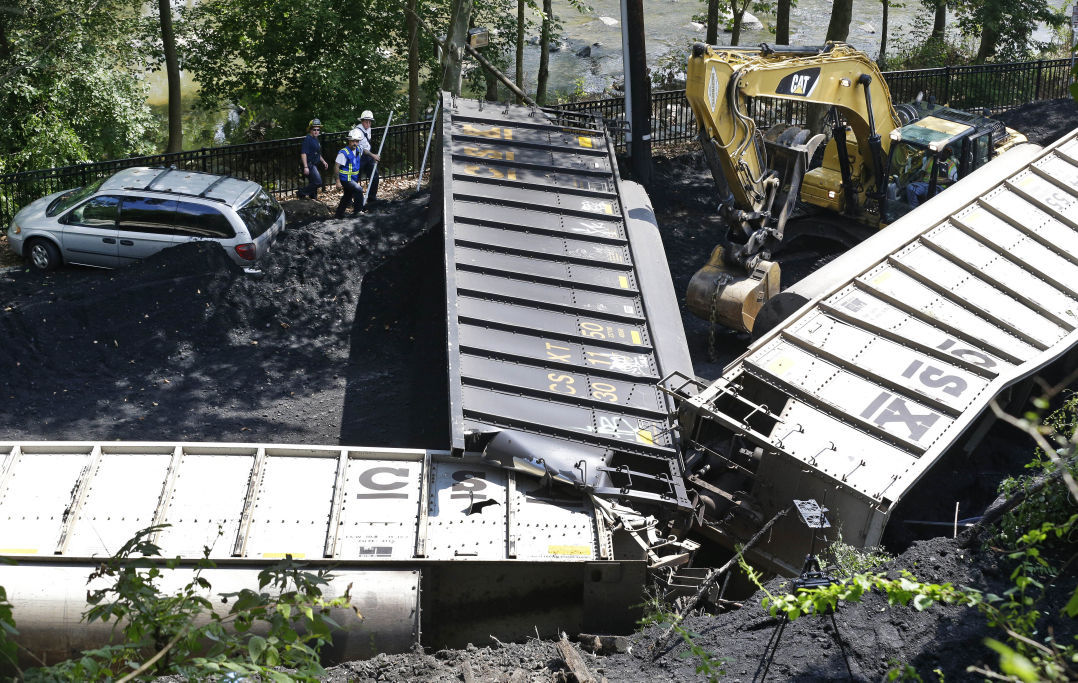After the '64 quake in Alaska. Cascadia's will be when?
Broken rails: Track defects behind lethal blasts
MOUNT CARBON, W.Va. — Track defects caused fiery crude-oil derailments that forced 1,100 people from their homes in this Appalachian village this year and killed 47 people in a Canadian town in 2013.
In fact, a Dispatch analysis of federal records shows that track defects and human error are to blame for most railway incidents.
Yet U.S. regulators focus on tanker cars instead of the rails that support the cars and millions of gallons of Bakken crude, a highly volatile oil from North Dakota and Montana that crisscrosses the country on the way to refineries each week..... more here
States, feds keep train-derailment reports from public
By Laura Arenschield & Rick Rouan The Columbus Dispatch • Sunday December 20, 2015
Information that state and federal government agencies collect about train derailments, particularly those that cause crude-oil spills, is hard to find.
Huge amounts of data about collisions, derailments and other accidents that happen along railroads in the United States are collected every year.
Some of it is compiled by the industry and distributed directly to the public upon request. But some is buried in databases that government officials are slow to release, if at all.
For example, the U.S. Department of Transportation requires railroads to submit annual reports to state emergency-response officials estimating how many trains carrying crude oil from the Bakken shale region pass through each county.
Yet in many states, the public is not allowed to see those reports.
A request by The Dispatch to see reports for Ohio went unanswered for months.....
.... Final reports reveal that what railroads initially tell the Federal Railroad Administration doesn’t always hold up in an investigation. Many underestimate damages and list causes that are later changed. more here
Lifting oil-export ban unlikely to affect WA state right away
By Hal Bernton Seattle Times Dec. 19, 2015
The lifting of the national ban on crude-oil exports is unlikely to trigger a rush to send oil to Asia from Washington state terminals, but that could change over the longer term.
With a 40-year oil-export ban lifted Friday by Congress, Washington terminals that receive Bakken shale crude by rail will be able to send unrefined product to Asia.
In the years ahead, that might be an attractive option. But current market conditions make the West Coast terminals an unlikely launching point for major overseas shipments, according to industry analysts..... more here



